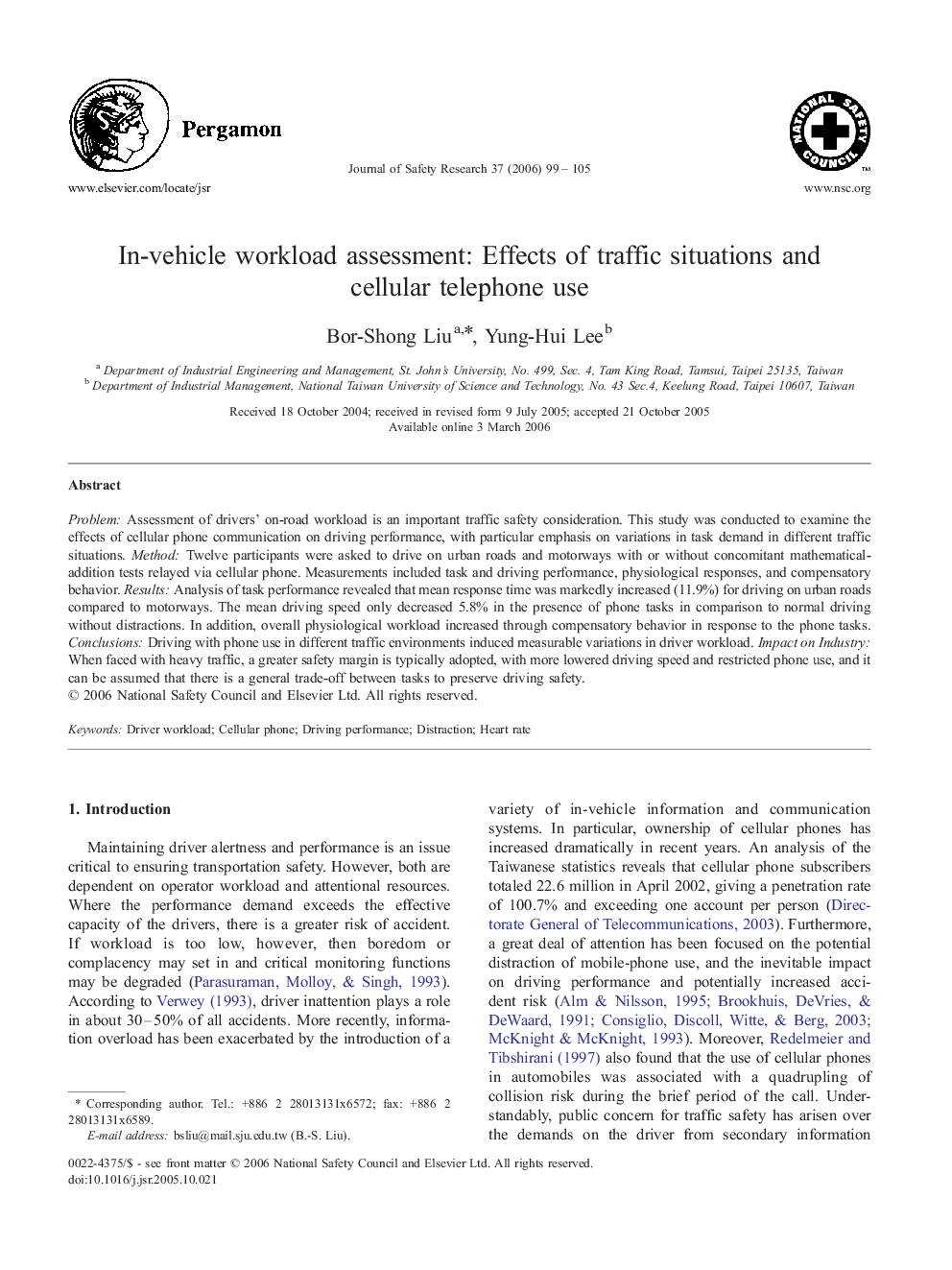| Article ID | Journal | Published Year | Pages | File Type |
|---|---|---|---|---|
| 587938 | Journal of Safety Research | 2006 | 7 Pages |
Problem: Assessment of drivers' on-road workload is an important traffic safety consideration. This study was conducted to examine the effects of cellular phone communication on driving performance, with particular emphasis on variations in task demand in different traffic situations. Method: Twelve participants were asked to drive on urban roads and motorways with or without concomitant mathematical-addition tests relayed via cellular phone. Measurements included task and driving performance, physiological responses, and compensatory behavior. Results: Analysis of task performance revealed that mean response time was markedly increased (11.9%) for driving on urban roads compared to motorways. The mean driving speed only decreased 5.8% in the presence of phone tasks in comparison to normal driving without distractions. In addition, overall physiological workload increased through compensatory behavior in response to the phone tasks. Conclusions: Driving with phone use in different traffic environments induced measurable variations in driver workload. Impact on Industry: When faced with heavy traffic, a greater safety margin is typically adopted, with more lowered driving speed and restricted phone use, and it can be assumed that there is a general trade-off between tasks to preserve driving safety.
